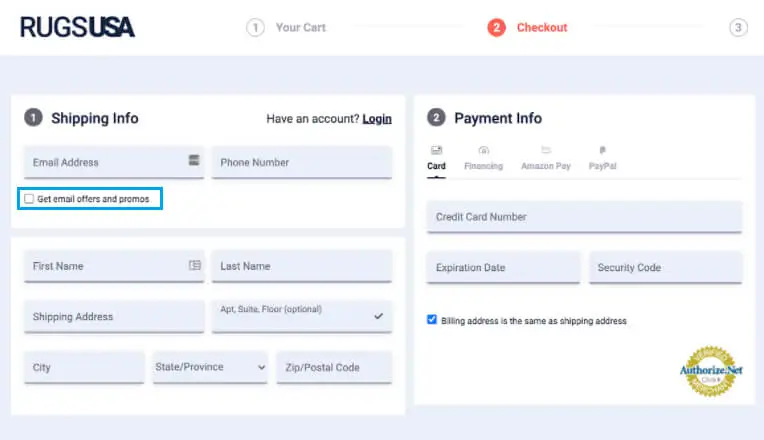Recommended Strategies For Deciding On An Email List Site
Recommended Strategies For Deciding On An Email List Site
Blog Article
What Should I Think About When Purchasing The Cpa Email List?
It is important to take into consideration a variety of aspects when buying an CPA email list. This will ensure that the list you purchase is of high quality and is in line with the law and pertinent to your goals for business. Be aware of these elements: Data Quality and Accuracy
The source of the data: Confirm whether the list is authentic. Usually, reputable providers gather their data from reliable sources including directories of trade associations, directories for professionals, and databases. Beware of lists made by scraping or from unreliable sources. They could contain inaccurate information.
Verification Process: Make sure the email list is valid and has been updated recently. This decreases bounce rates and helps ensure that you're getting active, valid emails. It is important to inquire about how often this list is updated as CPAs often change firms and positions.
Segmentation: A great CPA database should provide the option of segmentation. This could include locations (city or state) and industry-specific specializations (e.g. auditing and taxation, financial planning), years of expertise, and firm size. These elements can be utilized to increase the impact of advertising campaigns by providing more targeted targeting.
2. Legal Regulations
Data Privacy Laws - Ensure the email list complies to local and national regulations, such as the California Consumer Privacy Act. Lists should only contain emails that were obtained legally and with consent.
Compliance with the CANSPAM Act The list of addresses used in U.S. commercial email campaigns must comply to the CANSPAM Act. It is important to provide opt-out options, and avoid making use of misleading subject lines or other content. Non-compliance is punishable by penalties and other legal issues.
Choose to opt-in consent. Be sure to obtain email addresses via opt-in consent, i.e. recipients agreeing to receive emails. This reduces the chance of spam complaints, and will increase the amount of engagement.
3. Provider Reputation
Conduct thorough research about the reputation of a service. To gauge the experience of previous clients, check reviews, case-studies, and testimonials. Proven providers with a proven track record are more likely than to offer reliable and accurate data.
Transparency: Providers should be transparent in the way they collect data and how often it's changed. If the provider cannot clearly explain how they collect data this is a red flag.
Customer Support: If you require assistance with customizing your list or troubleshooting, as well as understanding compliance rules it is crucial to have a reliable customer service. A solid support system will save you time and effort throughout the campaign.
4. Cost and ROI
Pricing models. Different service providers offer various pricing models. Certain charge per person and others have a flat-fee or a subscription. Examine the costs and ROI you expect, while making sure to balance price with quality of the list.
Find out about the refund policy. If you have a large number incorrect or inactive email addresses, a lot of providers offer a replacement or refund policy. A guarantee provides peace of mind.
Cost vs. Quality: Don't only focus on cost. It may be tempting to buy a cheaper list, however if its quality isn't good, it could result in low participation as well as large bounce rates. Spend money on lists that are worth it in terms of data accuracy and segmentation.
5. Use and Ownership of Data
If you are looking to purchase an entire list, be clear if it's intended for a limited-time campaign or you will own the data. Although single-use list may be cheaper, owning your list allows you to conduct long-term marketing campaigns.
Exclusive vs. shared lists: Determine whether this list of email addresses is yours only or is shared with several buyers. Lists shared with others could cause people becoming exhausted if they've received a lot of marketing emails.
6. Data Integration and Format
CRM compatibility: Check that the list you receive is in a compatible format with your email marketing or CRM software. Examples include CSV and Excel. This will ensure easy management of data and its transfer.
User-Friendliness: Find out how easily data can be divided and managed after integration into your system. Personalization and targeting can be more effective if you have a streamlined data.
7. Ethical Questions
Relevance of Content CPAs are professionals who work hard, so it's important to send relevant, value-driven content. Beware of sending messages that are irrelevant and could damage your reputation or lead to more spam complaints.
Avoid sending too many emails: Limit the number of occasions you send your contacts an email. Over-communication can lead to unsubscribes or spam complaints, which could negatively impact your sender reputation.
Conclusion
To make sure that your investment is worthwhile, you should prioritize the quality of data and legal compliance when you purchase an email list from an CPA provider. An effective segmentation strategy, ethical practice, and targeting will help to maximize engagement and increase ROI while maintaining a positive brand image. Read the top rated cpa email list for more recommendations.
What Should I Be Thinking About When Buying An Urgent Care Email List?
It is important to take into consideration a variety of factors when purchasing an email list to provide urgent assistance. This will ensure the list you buy is correct and compliant with the law and pertinent to your marketing goals. Here are the key considerations:1. Data quality and accuracy
Source of the Data You must ensure that your service collects the data it needs from trusted sources like medical association databases, professional directories, or health databases. Avoid lists that are compiled using scraping or unreliable methods, since they may contain outdated or incorrect information.
Verification Process: Ensure that the email list has been regularly checked and up-to-date. A reputable service provider will follow an extensive method of verification to eliminate invalid or outdated email addresses. This will ensure high deliverability and lower bounce rates.
Segmentation The list should offer the option of segmenting by location (city or state) along with the size and type of urgent care center, the type of services that are offered (e.g. Diagnostics, Pediatrics), and roles for decision-makers (e.g. Medical directors, practice owner). The lists you make will enhance your outreach by boosting engagement.
2. Legal Regulations
Data Privacy Laws: Ensure that the list is compliant with relevant laws on data protection, like the General Data Protection Regulation (GDPR) in Europe and the California Consumer Privacy Act (CCPA) in the U.S., and other local regulations. This means that emails should be collected and processed legally with the permission of all the parties involved.
Compliance with the CANSPAM Act Email marketing efforts within the U.S. must adhere to the CANSPAM Act. This means that you need to include an opt-out option, refrain from using false subject lines, and provide your physical address when sending emails. Non-compliance could lead to penalties and could damage your company's image.
Opt-in Consent: Ensure that all email addresses in the list were acquired with permission. This means that the recipients have explicitly agreed to receive marketing communications. This minimizes the risk of legal concerns.
3. Provider Reputation
Establish Provider: Choose a provider who has an established track record of providing compliant, high-quality email lists. To assess the reliability of a company and customers' satisfaction, look through reviews, testimonials, and case studies.
Transparency. The service provider must provide information about the source of data and the frequency of updates. If the company isn't able to provide an exact explanation of how they collect information, this could indicate that their data is of low quality.
Customer Support: A solid customer support team is essential for those who require help with technical problems and list customization, or even compliance. A responsive provider is able to help you get the best value from your list.
4. Return on investment (ROI) and cost
The majority of email list providers have different pricing plans that include flat-fees, pay-per-contact or flat-fee. The pricing model should be evaluated in relation to the budget for marketing and the ROI you anticipate. Examine the quality and cost of the list with relevant information.
Refund or replacement policy A reputable supplier usually offers a replacement or refund policy if an important portion of email addresses is not valid or is not deliverable. Make sure you understand the terms and conditions of the policy prior to you make a purchase.
Value for Money - Rather than select the cheapest option consider lists that have accurate data or detailed segmentation. A high-quality database will boost engagement and return on investment.
5. Use and Ownership of Data
Single-Use vs. Multi-Use: Determine whether the list could be used for only one campaign or a variety of campaigns. Lists that are multi-use can provide greater value, particularly in the event that they are utilized for ongoing outreach campaigns.
Exclusive vs. Shared Lists: Determine if the list is exclusive to your company or shared with buyers. Shared lists can lead to exhaustion of lists, since recipients are subject to marketing messages from multiple businesses.
6. Data Integration and Format
Check for CRM compatibility - ensure that the email list you receive is in a format which can be integrated into your Customer Relations Management (CRM) platform or marketing platform. Examples include CSV and Excel. This will ensure seamless integration of your campaigns.
User-friendliness: The email list must be simple to segment and manage based on certain requirements. Personalization and targeting will be more effective if you have a well-organized list.
7. Ethical Considerations
Relevance and worth of content The importance and value of content professionals, which means the information you share with them must be relevant and useful. Send messages that are tailored to the specific needs of their clients. Inappropriate content could damage your brand's image and reduce engagement.
Be aware of how often you send emails. Unsolicited or excessive emails can result in spam complaints and lower the reputation of your sender.
Conclusion
When you purchase an urgent email list, pay attention to the quality of the information, the legal compliance, and reputation of the vendor. Be sure that the list is segmented. The information should be updated regularly and must meet all privacy laws. Utilizing a well-targeted, high-quality list and delivering content that is relevant, you will increase the engagement of your customers and boost your return on investment. Have a look at the recommended urgent care email list for blog guide.